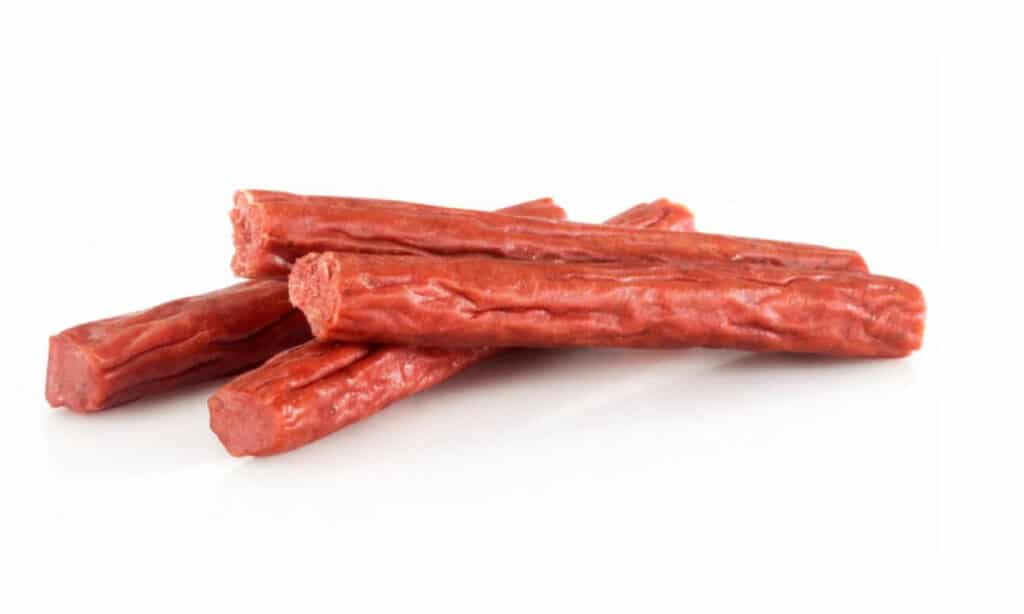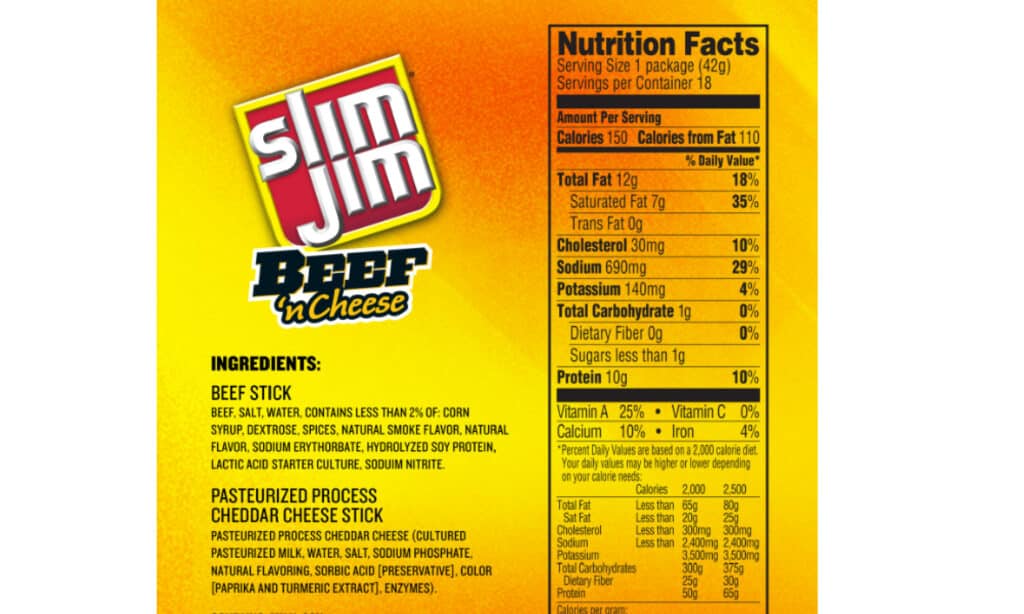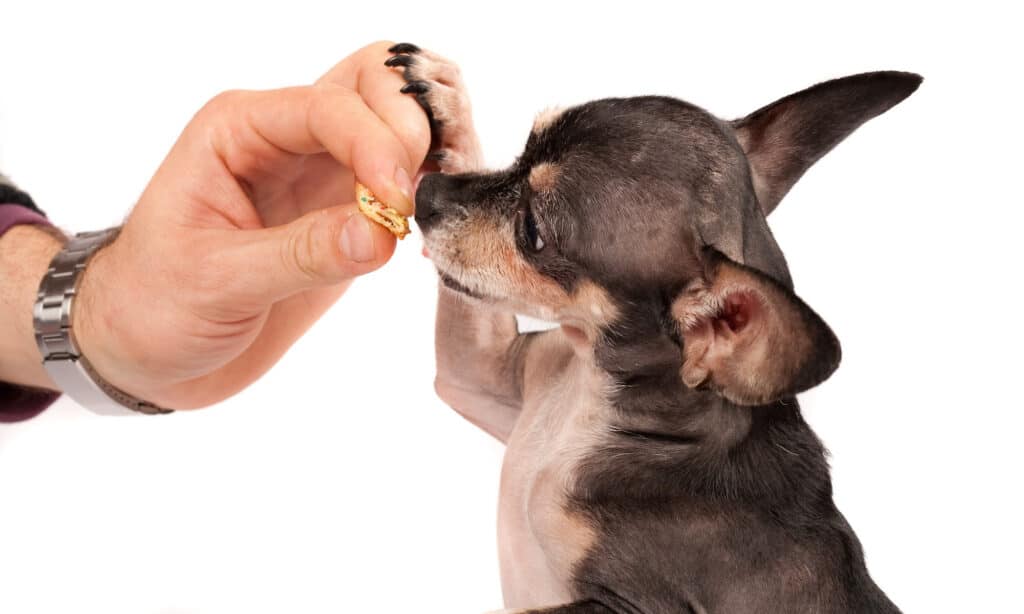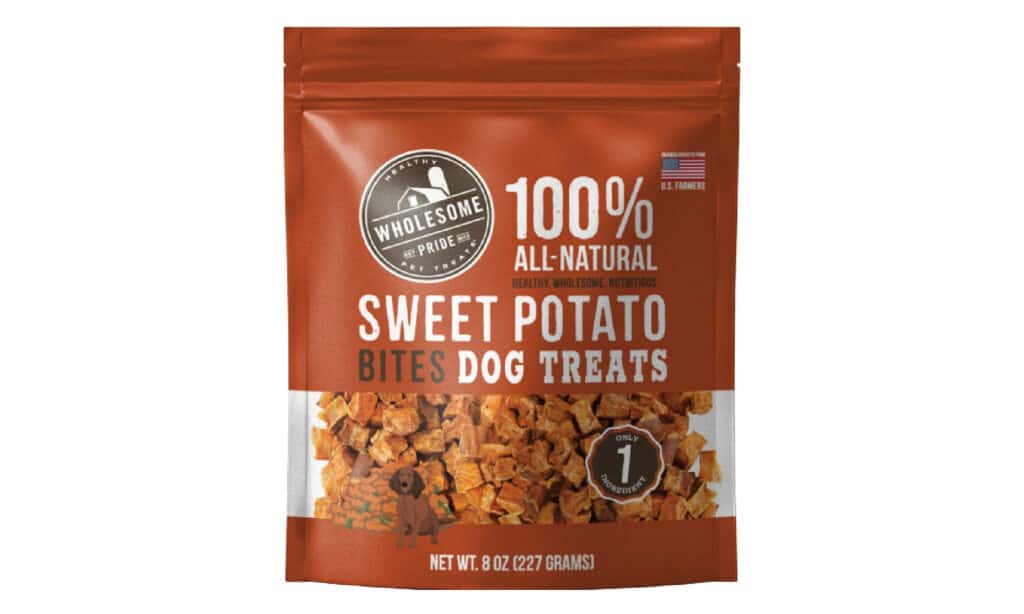Hello there, pet owners! Have you ever wondered whether or not your furry friend can safely eat Slim Jims while you snack on them? As a pet expert, I’ve been asked this question many times, and there are some important things to keep in mind before sharing this popular snack with your dog. In this article, I’ll discuss whether or not Slim Jims are safe for dogs, and offer some alternative snack options that are better for your pet’s health. So let’s dive in and make sure our furry friends stay happy and healthy!

What are Slim Jims?
To start things off, let’s take a closer look at what Slim Jims actually are. These popular meaty snacks are a type of beef jerky that are known for their spicy flavor and convenient packaging. Haven’t we all heard their slogan “Snap Into A Slim Jim!” as we envision a classic wrestling entertainment star?
Slim Jims are made from processed meat and a variety of seasonings, and are often high in sodium and other additives. While they may be a tempting snack for us humans, it’s important to consider whether or not they’re safe for our furry friends. Some of the ingredients in Slim Jims can be harmful to dogs, so it’s crucial to know what’s in these snacks before deciding whether or not to share them with your pet.
Where Do Slim Jims come from?
Slim Jims were first introduced in the United States in the 1920s and quickly gained popularity. Originally, they were made from beef scraps that were ground up and seasoned to create a tasty snack that didn’t require refrigeration. Nowadays, you can find 100 different varieties in convenience stores and supermarkets across the country.

Slim Jim Ingredients
When it comes to the ingredients in Slim Jims, the list can vary slightly depending on the specific product. Common ingredients include beef, pork, chicken, corn syrup, spices, salt, and sodium nitrite. Some varieties may also contain additional additives like monosodium glutamate (MSG), artificial flavors, and preservatives.
While many of these ingredients are safe for humans to eat in moderation, they may not be suitable for dogs, especially those with preexisting health conditions. To be safe, it’s always best to choose safer and more nutritious treats for your furry friend.
Sugars
It’s not a good idea to give your dog treats that contain high fructose corn syrup. This ingredient can make dogs more prone to being obese or diabetic. Sugar leads to inflammation in your dog’s body, especially in joints. Added sugar can also lead to tooth decay and other dental problems. Choose treats that are made from whole, natural ingredients instead.
Salt
It’s important to be careful when it comes to feeding your dog any treats that are high in salt. Although dogs need a certain amount of salt in their diet, too much can cause a variety of health issues, such as dehydration, electrolyte imbalances, and high blood pressure. Additionally, treats that are high in salt, like certain types of jerky, can be hard on your dog’s digestive system, leading to vomiting or diarrhea. Choosing treats made with natural, wholesome ingredients that support overall wellbeing is the best way to ensure your pet stays healthy and avoid giving them treats loaded with salt.
Corn, Soy and Wheat
Food sensitivities and allergies can be a real challenge for dogs, and three of the most common culprits are corn, soy, and wheat. These ingredients are frequently found in many dog foods and treats, but they can cause a range of health issues for some dogs. Some dogs may experience digestive problems like diarrhea, vomiting, or bloating, while others may develop skin irritations, itchiness, or other allergic reactions. It’s a good idea to avoid feeding your dog any foods or treats that contain these common allergens.

Help?!? What if my dog accidentally ate a lot of Slim Jims?
If your dog accidentally ate a lot of Slim Jims, it’s important to monitor them closely for any signs of distress.
Post Snack Distress Signs & Symptoms
Dogs who eat processed foods like Slim Jims may have vomiting, diarrhea, and discomfort. In some cases, they may also develop pancreatitis, a condition that causes inflammation of the pancreas and can be quite serious.
If your dog ate more than 3 or 4, you should probably call your local vet clinic. They can advise you based on the size and health of your dog. And the amount of beef snack consumed.
If your dog seems lethargic or unresponsive, go to the pet emergency hospital right away.
Canine-friendly and safe alternatives to Slim Jims
If you’re searching for a tasty and healthy snack to give your furry friend, there are plenty of great alternatives to Slim Jims that are both safe and delicious.
Here are a few things to consider:
- Dehydrated beef liver: This savory treat is a fantastic source of protein and contains important nutrients like iron and vitamin A. Plus, most dogs seem to really enjoy the taste of beef liver, making it a great Slim Jim alternative.
- Carrots: Crunchy and low in calories, carrots make a great snack for dogs. They’re high in fiber and vitamins, making them a nutritious choice for your pet.
- Apples: Many dogs enjoy the sweet, crunchy taste of fresh apples. These are a great source of fiber and vitamin C.
- Green beans: Cooked or raw, green beans are a healthy and low-calorie snack that many dogs find satisfying. They’re also a good source of vitamins and minerals.

Healthy Store-Bought Recommendations
Of course, these are just a few of the many alternatives to Slim Jims that are safe and healthy for your furry friend. When choosing treats for your pet, it’s important to read the ingredient list carefully and opt for products that are made with natural, wholesome ingredients. Your dog will be grateful for the tasty and nutritious treats!
~Lindsie



